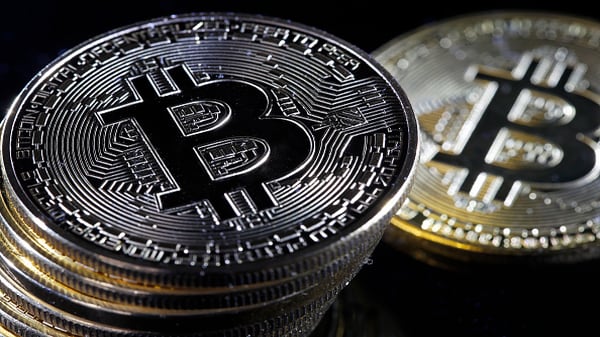
Kenyans will never stop falling for get rich quick schemes and that is why they always fall for dubious schemes each time.In the latest scheme, the only thing those who have been conned were told is that they were adults and not children.
So what happened in this bitcoin scheme? follow through.
Bitcoin has proved to be a giant bubble that will end in grief after a Brazilian company with juicy deals in Kenya went under with hundreds of millions of shillings of local bitcoin investors.
A few years ago, kenyans went gaga when they were told that quails could cure virtually all ailments. From conditions such as hypertension, digestive disturbances, erectile dysfunction and all sorts of diseases that you could convince all desperate sick people.

The mineral-rich egg was touted as the ultimate medicine. This drove the cost of the eggs and quails to new highs.At the end of the day everybody opened the doors and gave the birds permission to fly when they learnt they had been duped.
The Brazilian firm, founded by con Ricardo Rocha, promised those who would be ranked among its biggest investors by April 18, 2018, a free five-day trip to the United Arab Emirates, where they would meet “top global business gurus”.

One Kenyans who fell for the fraud and invested Sh4.2 million in the scheme in the hope to make a killing has lost her life savings. Now she is desperate, sick and confused.
She introduced her friend who invested Sh600,000 into the scheme. That, too, is gone.

Kenyans who were lured into the world of cryptocurrency by Rocha and his agents at Velox 10 Global, a little-known company that claimed to trade in bitcoins.
The firm said it would help investors mint millions of shillings in profits.
It charged $100 (about Sh10,000) as membership fee, but members needed to upgrade by paying an additional $200, with the promise of earning up to $4,000 daily.
The Velox launch at Hotel Intercontinental, Nairobi on September 20, 2017 was colourful.
It promised ambitious Kenyans millions of shillings in returns if they let it invest their cash in bitcoins.
At the time, the then Central Bank of Kenya Governor Njuguna Ndung’u warned against investing in the cryptocurrency.

At the time Velox began its operations in Kenya, it had not yet been registered as a company in the country.
It was registered on January 25, 2018, nearly four years after its operations began.
Media reports from the launch event indicated that Mr Rocha was accompanied by the local Velox representative, Mr Paul Mugo.
Other individuals that were used to market the venture were Ms Sarah Nyambura and Ms Jane Nyambura.

Kenyans were promised up to 50 per cent profits on their investments, a typical line used by pyramid schemes.
Ms Muthoni and the others were also promised more money if they introduced more people to the idea.
On November 13 and 17, 2017, Ms Muthoni wired Sh3.2 million to Mr Gichuki’s Equity Bank account.Mr Gichuki was aware that the bank would want to know why she was transferring more than Sh1 million as required by law.

He told her to indicate that the money was “payment for work done” in the transfer forms.“I knew I would recover the money in months,” Ms Muthoni told the Nation.Six months later, a desperate Ms Muthoni reported the matter to Central Police Station when Mr Gichuki refused to return her money.
She also said Mr Gichuki had even threatened to harm her and her daughter. Mr Gichuki was arrested and arraigned for fraud the Milimani chief magistrate’s court. The case is ongoing.

He, however, insists that he was a businessman who also lost his investment, and that he has been in contact with some people that traded through him, to talk them out of suing “since I am also a loser”.
He insists that Ms Muthoni and others who invested in Velox were adults who knew what they were doing.
“The fact that my account was used for the transactions is no reason to blame me,” he told the court.
The two website names the company was associated with are no longer accessible.
Velox10.com is up for sale, under auction by an IT firm called BGroup.
The second one, veloxglobal.com, reads: “This webpage is parked for free”. An IT expert contacted said the message means the website was a dummy page and likely never existed.
In January last year, a group of seven filed a case at the High Court seeking to stop Velox from operating in Kenya.